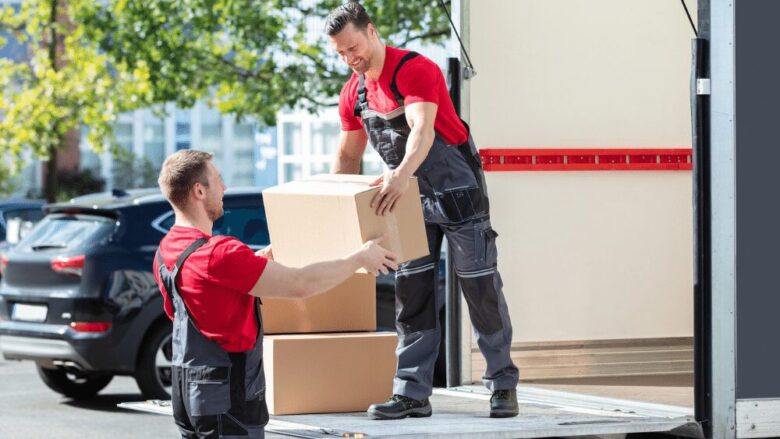Downsizing an estate and orchestrating a cross-country move can be a complex yet transformative process, often undertaken for various reasons such as retirement, lifestyle changes, or a desire to minimize. In this comprehensive guide, we’ll explore the key considerations and strategies for effectively downsizing an estate and seamlessly navigating a cross-country relocation.
1. Assess Your Estate

Begin the downsizing process by conducting a thorough assessment of your estate. Identify items with sentimental value, necessities, and belongings that are no longer essential. Categorize possessions into “keep,” “donate,” “sell,” and “discard” to streamline the downsizing effort.
2. Create a Detailed Plan
Develop a detailed downsizing plan that includes a timeline and specific tasks. Consider breaking the process into manageable phases, focusing on one room or category at a time. Having a structured plan will help you stay organized and alleviate the overwhelming nature of downsizing.
3. Prioritize Sentimental Items
Sentimental items often hold significant emotional value. Prioritize these possessions early in the downsizing process, deciding which items you want to keep, share with family members, or perhaps create digital records of for posterity. This intentional approach helps preserve cherished memories while reducing physical clutter.
4. Downsize Possessions
Downsizing involves making tough decisions about possessions. Consider the functionality and necessity of each item. If an item doesn’t serve a practical purpose or bring you joy, it might be worth letting go. This step is crucial for reducing the overall volume of belongings before the cross-country move.
5. Host Estate Sales or Auctions

Organize estate sales or auctions to sell items you no longer need. Engage professionals if necessary, and use these events as an opportunity to generate funds to offset moving costs. Promote the sales through local channels and online platforms to attract a wider audience.
6. Donate Unneeded Items
Donating unneeded items is an impactful way to contribute to the community while simplifying your downsizing efforts. Research local charities, shelters, or organizations that accept donations and arrange for pick-ups or drop-offs. This altruistic approach adds a positive dimension to the downsizing process.
7. Digitize Important Documents
Minimize the burden of physical paperwork by digitizing important documents. Create electronic copies of legal papers, financial records, and sentimental documents. Store these digital files securely, making it easier to manage and access essential information during and after the move.
8. Hire Professional Movers

When undertaking a cross-country move, hiring expert cross country moving services is a wise investment. Research reputable moving companies with experience in long-distance relocations. Obtain quotes, inquire about insurance coverage, and discuss specific requirements to ensure a smooth and secure transition.
9. Plan for Specialty Items
If you own specialty items such as antiques, fine art, or fragile collectibles, consult with professionals who specialize in handling such items. Ensure these possessions are adequately packed, insured, and transported with care to preserve their value and condition.
10. Pack Strategically
Adopt a strategic packing approach to optimize space and protect your belongings. Use sturdy boxes, bubble wrap, and packing materials appropriate for different items. Label boxes clearly with contents and destination rooms to facilitate a more organized unpacking process.
11. Consider Storage Solutions

Evaluate the need for temporary storage solutions for items that won’t immediately fit into your new space. Research local storage facilities, inquire about their security measures, and determine whether short-term storage aligns with your downsizing and relocation timeline.
12. Notify Relevant Parties
Before the move, notify relevant parties about your change of address. Update your address with the postal service, inform utility providers, and contact financial institutions, healthcare providers, and any subscription services. This ensures a smooth transition and minimizes disruptions to essential services.
13. Family and Friends Involvement
When embarking on the journey of estate downsizing and a cross-country move, don’t underestimate the value of involving your family and friends. Their emotional support and practical assistance can be invaluable. Consider holding family meetings to discuss decisions about sentimental items, seek their input on the downsizing process, and ask for help with packing and organizing. The presence of loved ones during this transitional phase can provide comfort and make the experience more manageable.
14. Environmental Considerations
While downsizing and moving, it’s essential to be mindful of the environment. As you declutter, explore eco-friendly options for disposing of items. Consider recycling, donating to organizations that promote sustainability, or repurposing belongings. Additionally, reduce waste by using reusable packing materials and minimizing single-use plastics during the move. By incorporating environmentally conscious practices into your downsizing and relocation, you can make a positive impact on the planet while simplifying your move.
15. Healthcare Transition

Managing your healthcare needs during a cross-country move is crucial. Start by notifying your current healthcare providers of your impending move. Obtain copies of your medical records, prescriptions, and any necessary referrals. Research healthcare providers in your new area and establish contact with them in advance. Ensure that you have an adequate supply of medications for the transition period. Taking proactive steps to manage your healthcare transition will help you maintain your well-being during this significant life change.
16. Pet Arrangements
If you have pets, their well-being is a priority during a cross-country move. Plan ahead by finding pet-friendly accommodations for your journey. Ensure your pets have proper identification, including microchips and ID tags with updated contact information. Pack essential pet supplies, such as food, water, bedding, and medications. If your move involves air travel, familiarize yourself with airline pet policies and requirements. Taking these precautions will ensure a safe and comfortable experience for your furry companions.
17. Vehicle Transport
When relocating cross-country, decide how you will transport your vehicles. Research reputable auto transport services if you’re not driving them to your new destination. Obtain quotes, verify insurance coverage, and discuss delivery timelines. If you have multiple vehicles, consider selling or donating any unnecessary ones to streamline the move. Properly preparing your vehicles for transport or sale is essential to ensure they arrive in good condition or find new owners who will appreciate them.
18. Emergency Preparedness

It’s essential to be prepared for unexpected situations during a cross-country move. Create an essentials box that contains important documents, medications, toiletries, and other necessities. This box should be easily accessible during the journey and upon arrival at your new home. Familiarize yourself with emergency services and healthcare facilities in your new area. Having a plan in place for unexpected events will give you peace of mind and ensure that you can address any unforeseen circumstances swiftly and efficiently.
19. Local Services Research
To ease your transition to a new location, conduct thorough research on local services in your destination area. Identify nearby grocery stores, healthcare facilities, pharmacies, and public transportation options. Understanding the local amenities and services available will help you settle in more quickly and smoothly. Additionally, consider exploring online resources and community groups to connect with residents and gain insights into the area’s offerings and opportunities.
Conclusion
Estate downsizing and cross-country moves require careful planning, organization, and a methodical approach. By assessing your estate and creating a detailed plan, you can navigate this transformative process with efficiency and ease. Whether you’re embarking on a new chapter in life or embracing a minimalist lifestyle, a comprehensive approach to downsizing and relocation ensures a successful and stress-free transition.

